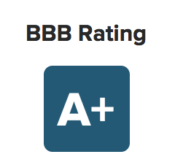
An arrest warrant is a legal document that directs and authorizes police to take a crime suspect into custody. If you have been arrested, the existence of a warrant is a good thing. It states the reason you were arrested and what you are to be charged with in writing. This is opposed to an arrest by a police officer who documents the reasons later.
A warrant may be issued as an arrest warrant or a bench warrant. An arrest warrant is issued after a person has been indicted or is the subject of a criminal complaint. A judge may issue a bench warrant after a suspect has allegedly done something that disrupts the business of the court, such as failing to appear for a hearing or not paying a fine.
Regardless of the type, if you are subjected to an arrest warrant, you need to speak to an experienced criminal defense attorney as soon as possible. Being arrested can have many negative ramifications beyond inconvenience and embarrassment. The defense attorneys of the Law Offices of Jonathan Marshall can help you defend yourself against charges contained in an arrest warrant. Contact us as soon as possible by phone or online.
When Is an Arrest Warrant Issued in New Jersey?
Under New Jersey court rules, an arrest warrant may be issued in two ways:
- Upon Indictment. Once an indictment or accusation involving an indictable offense is filed against a suspect, the court’s criminal division manager should issue an arrest warrant. In New Jersey’s system, prosecutors take any charge more serious than a disorderly persons offense to a local grand jury and ask the grand jury to return formal criminal charges against the suspect.
- Upon Filing of a Criminal Complaint. There are two forms of complaint that can be issued in a criminal case. The first form is a summons complaint, which simply involves issuing the complaint with no arrest. The second form of complaint is a warrant complaint, which requires the arrest of the defendant. To issue a warrant complaint, the court must find that there is probable cause to believe that a criminal offense was committed and that the defendant committed it.
Why Would a Bench Warrant Be Issued in New Jersey?
A New Jersey judge can execute a bench warrant when they have been informed that someone has failed to perform as ordered by the court. This includes:
- Failure to appear for a hearing or trial
- Failure to pay a fine on time
- Violation of the terms of probation
- Parole violations
What Happens After a Warrant Is Issued?
A warrant directs law enforcement to arrest the designated individual and take them to jail or bring them before a judge. After an indictment, police will try to locate and arrest the suspect. Police may make less of an effort for disorderly or petty disorderly offenses. However, warrants are entered into computer databases as soon as they are issued, so police at traffic stops, street arrests, or domestic complaints can check for warrants and execute any found.
An arrest warrant is a court order for the defendant to be taken into custody pending a first appearance in court. When the grand jury has handed up an indictment or the charge is a disorderly persons offense, the defendant is taken to the local county jail. For a petty disorderly persons offense, the defendant will be brought before the court issuing the warrant for the judge to determine the conditions of bail or release on personal recognizance.
Defendants who are jailed on arrest or bench warrants must face a hearing within 48 hours of being taken into custody. During the first appearance, a Superior Court judge will set conditions of pretrial release for eligible defendants, order pretrial detention in certain cases, or set bail.
How Can a Lawyer Help You if You Are Named in a Bench Warrant or Arrest Warrant?
If a warrant has been issued in your name and the police can locate you, you can expect to be arrested and taken to court or jailed. Even if you have been arrested on a warrant that contains a technical error or deficiency, you can be legally held under New Jersey law.
Any time a person is arrested, the individual has the right to speak to an attorney before submitting to questioning by police. If taken to court, the judge will assign a lawyer to protect your rights if you have not already obtained representation.
When under arrest and being questioned, you should tell the police you want to cooperate but want to speak to your attorney first. As soon as you are able, contact an experienced New Jersey criminal defense lawyer. If you know you are about to be indicted or arrested, you should contact a criminal attorney who knows New Jersey criminal law.
If you contact the Law Offices of Jonathan Marshall, one of our defense attorneys can promptly seek your release and negotiate the conditions of release.
Our legal team will evaluate the evidence the prosecution has used to justify your arrest and gather evidence to support your defense.
Our goal as your attorneys will be to obtain a resolution to your case that preserves your freedom and your future. If you owe fines or have violated probation or parole requirements, we will negotiate for means to set things right that are as favorable to you as possible. If you face criminal charges, we will thoroughly challenge the prosecution’s case and seek dismissal or reduction of the charges against you.
In cases of nonviolent first offenses, New Jersey offers probation and diversion programs that are helpful for some defendants. In other cases, it may be beneficial to plead guilty to lesser charges or to take your case to trial.
Each case is different. But regardless of the charges you face, prosecutors must prove their case beyond a reasonable doubt to obtain a conviction. We will make sure you have a robust legal defense that is your Constitutional right.
Contact Our New Jersey Defense Attorneys
If you face criminal charges in New Jersey, exercise your right to remain silent, and call our experienced criminal defense attorneys as soon as possible. We will act promptly to seek your release from custody and prepare a defense that is aimed at the best available legal outcome for you.
Don’t face New Jersey’s harsh criminal justice system on your own and risk costly fines, jail, and a permanent criminal record. Contact the Law Offices of Jonathan F. Marshall now for a free initial legal consultation.













